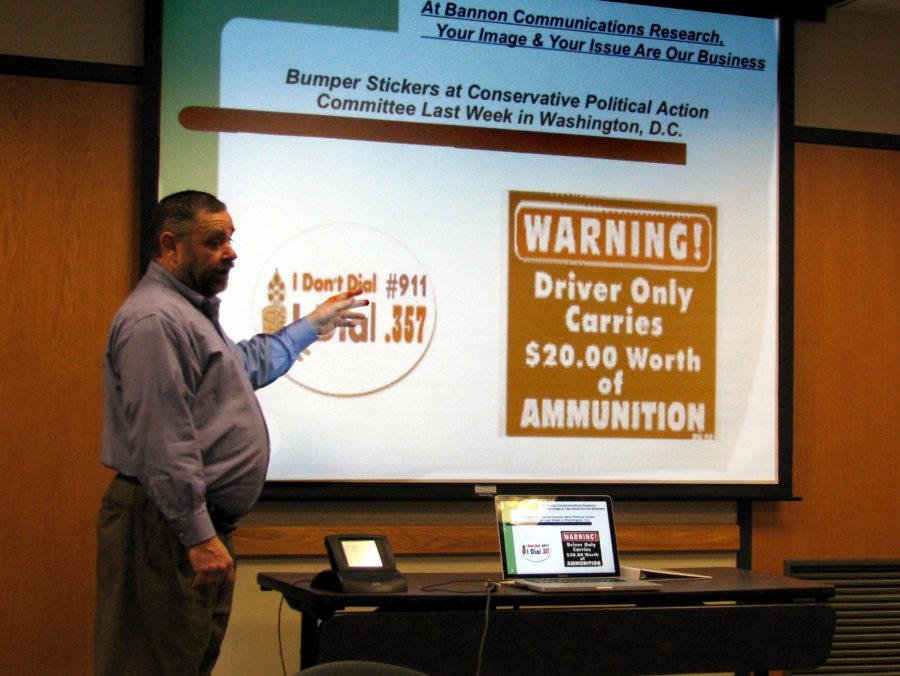S.O.U.L.S. presented its monthly “Food for Thought” discussion on the politics of gun control last Wednesday, headed by Professor Brad Bannon of the Government Department. This timely topic, in the wake of the Tucson, Arizona shootings, has been a difficult feat to overcome for those in favor of stricter gun control laws. At the hands of many sources, these hurdles include special-interest groups, different cultures within the United States, and even our country’s backbone: the Constitution.
As the discussion outlined difficulties in revising gun control policy, the ideology of the United States in regards to each distinct region had to be recognized as integral in the inability to find common ground.
“It’s difficult for people in the Northeast to understand this, but if you go West or South, the gun culture is everywhere. It’s a matter of routine for them,” said Bannon. “If you go to a place like Texas, [owning a gun] is like owning a cell-phone. People just have them.”
These mentalities, illustrated by Bannon with a fairly broad brush, have a tendency to become even stronger when threatened.
“Any time Congress kicks around the idea of stricter gun control, these people go up in arms,” he said. “They declare, ‘You can pry the gun out of my cold, dead hands.’”
This “wild-west” mentality seems to be inherent in the nature of many Americans, and as a cause of this, Bannon pointed to one very famous paragraph in our Constitution: The Second Amendment.
“A well regulated Militia, being necessary to the security of a free State, the right of the people to keep and bear Arms, shall not be infringed,” it states.
One certain lobbying group, the National Rifle Association (NRA,) does its utmost to protect this amendment, and as a result, has a huge influence on the lack of stricter gun control laws.
“They are a very well-organized group that smack restrictions on the ownership of guns”, Bannon said. “They are also one of the biggest special interest groups in Washington D.C.”
Therein lies one of the most significant issues with gun control politics and the hesitation to confront them. The NRA, as outlined by Bannon, is almost untouchable. According to Bannon, they are large, wealthy and popular.
“This lobbying prevents reasonable conversation from happening,” said Tim Albers, assistant director of Service Learning through S.O.U.L.S. “There’s no room for debate, and I think that is really unfortunate.”
“I can understand, when you live in a rural area, and you do hunt, that it’s part of your culture,” said Suffolk senior Molly Rodau. “But, I think people on the NRA side need to recognize the other side of gun control, which is gang culture. Those who are using it for violence are not using it for tools or protection…. There are pieces in our society that didn’t exist when the amendment was written. You need to take into the consequences of today.”
Regardless of causes, according to a study done by the American Journal of Epidemiology, 267,000 people in the United States have been killed by guns in the home since 2001. It is with no dispute that this number needs to decrease. The way to do that, however, is unclear, not only to the general public, but those involved with their politics.













